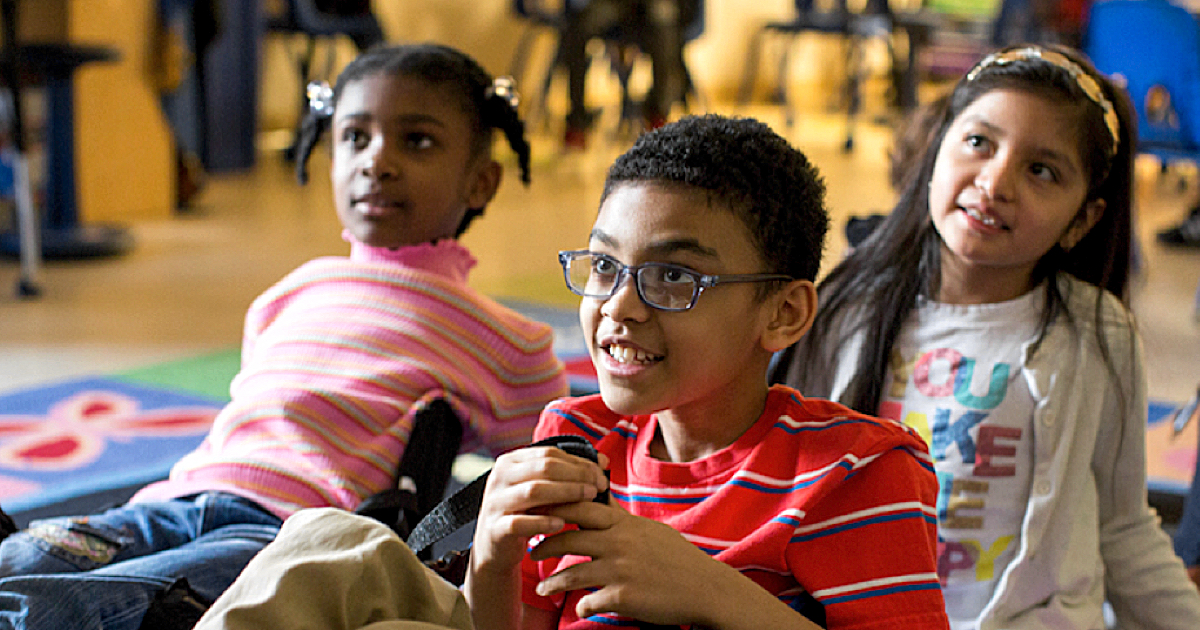
Sep 21, 2018 12:00:00 AM
Last week I went to my first Congressional Black Caucus Foundation’s Annual Legislative Conference. I came home empowered, inspired, and motivated. But also, somewhat unfulfilled. I attended the session, “Reclaiming Our Civil Rights: Combating the Administration’s Assault on Education,” hoping to hear the panelists’ thoughts and solutions on how to fight current educational injustices. But, once again, teachers union rhetoric, politics, and anti-school choice comments kicked the conversation off.
AFT's EVP @mcricker kicked off the #BrainTrust panel on combating the Trump/DeVos assaults on education at #CBCFALC2018, speaking on the the inequities of education in the U.S. pic.twitter.com/kd03M9rpga
— AFT (@AFTunion) September 13, 2018
I kind of knew how the rest was going to go so I made an exit.
The assault on choice at #CBCFALC2018 is disappointing. The traditional public school system has failed black and brown kids. If there aren't other options available, what are families supposed to do???
— PeeplesVoice (@PeeplesVoiceChi) September 13, 2018
We have to stop fighting over models and fight this unfair system!
There were thousands of brilliant, successful, and powerful Black people in one city and I don’t know if any of the conversations advanced the issues of equity and equality in education. I was disappointed by that. Because first of all, everyone wants to talk about education being a civil right but when it comes to parents having school choice, people turn their noses up. I mean, aren’t civil rights all about having freedom, and in having freedom, you have choice? The hypocrisy is laughable. But, I get it. Most of us who are Democrats care about public education, can’t stand the Trump administration, and overall, want the best for our kids. However, our political affiliations should not interfere with progressive conversations about educational equity and equality for Black kids.
Shavar Jeffries said it best:
.@shavarjeffries: we wake up each and every day to fight- and school choice is a big part of that...we’re unapologetic about demanding more educational opportunities for families #BringTheFunk #CBCALC18 @EdReformNowUSA
— publiccharters.org (@charteralliance) September 13, 2018
And if we’re going to be unapologetic and demanding in this fight for more educational opportunities for families then we don’t have time to waste bickering about what schools should be able to teach our kids. Bottom line, our kids are stuck in failing schools—traditional public, charter, and private. Next time, let’s use a conference attended by thousands of brilliant, successful, and powerful Black people to dig into that.
This country has made it seem like educating kids of color is as difficult as turning water into wine and that equity and equality are impossible to achieve. But the leaders have proven America wrong. Thanks to quality academic instruction, mentorship, and leadership, these young Black men from Chicago are attending Georgetown University.
Big UPs to @UrbanPrep founder & CEO @timking1 for being recognized by @charteralliance during @CBCFInc Weekend. A couple of @UrbanPrepAlumni (@Georgetown @GSPhoyas students) showed UP to the event too! #WeBelieve #BringTheFunk pic.twitter.com/IzxpbN3pXW
— Urban Prep Academies (@UrbanPrep) September 17, 2018
And guess what? They graduated from Urban Prep Academies, a charter school organization that has had 100 percent college acceptance rates since its opening. Naysayers and charter haters can pick that apart all they want but at the very least, Urban Prep and other charter schools help set a precedent and expectation for excellence and higher educational attainment that was lacking in some of the most underserved communities in Chicago. They deserve props for that.
Tim King, Urban Prep’s CEO, had a vision to improve education in low-income communities and so did these other Black leaders who were honored at The National Alliance of Public Charter Schools’ #BringTheFunk Charter Leadership Awards Ceremony. People like Ramona Wilder who runs Wilder’s Preparatory Charter School that was started by her parents. Or Claire Anderson who founded Atlanta Gifted Academy because she couldn’t find a good school option for her gifted son, Caleb. And finally, Dr. Paula Watkins, the first Black woman to found a virtual school.
I’d imagine that each of these leaders’ visions were born out of urgency or even out of being tired of the status quo. And like Donald Hense said, we can’t keep sending our kids to these failing schools.
Tanesha Peeples is driven by one question in her work—“If not me, then who?” As the former Deputy Director of Activist Development for brightbeam, Tanesha merges the worlds of communications and grassroots activism to push for change in the public education system. Her passion for community and relentless mission for justice and liberation drive her in uplifting and amplifying the voices and advocacy of those that are often ignored. Tanesha wholeheartedly believes that education is the foundation for success. Her grand vision is one where everyone—regardless of ethnicity, socioeconomic status, gender or ZIP code—can have access to a comfortable quality of life and enjoy the freedoms and liberties promised to all Americans. And that's what she works towards every day.
Few issues in education spark more tension and debate than standardized testing. Are they a tool for equity or a burden on students? A necessary check on school systems or a flawed measure of...
Charter schools are public schools with a purpose. Operating independently from traditional school districts, they're tuition-free, open to all students, and publicly funded—but with more flexibility...
Despite the benefits of a diverse teaching force, prospective teachers of color fall out of our leaky preparation pipeline at every stage: preparation, hiring, induction, and retention. Here’s what...
Ed Post is the flagship website platform of brightbeam, a 501(c3) network of education activists and influencers demanding a better education and a brighter future for every child.
© 2020-2025 brightbeam. All rights reserved.
Leave a Comment